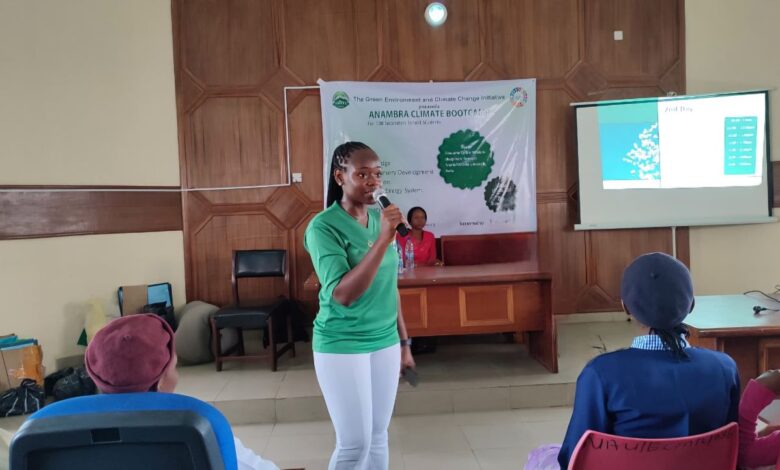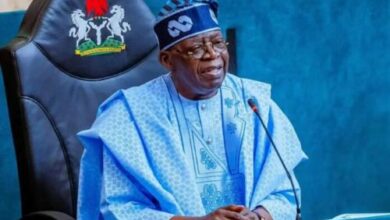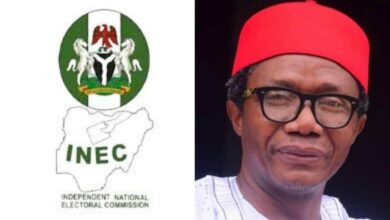Mmachukwu Urges Collective Efforts Towards Net Zero Achievement In Anambra

The Founder, Green Environment and Climate Change Initiative, (GRENCHI), Mmachukwu Obimdike, says only concerted efforts will help Anambra State to achieve net zero goal by 2060.
She made the call during a Green Sustainability Forum organized by United Nations Sustainable Development Solutions Network (UN SDSN) as part of the National Green Campaign.
Angel Network News (ANN) gathered that
Net zero refers to the balance between the amount of greenhouse gases emitted into the atmosphere and the amount removed from it.
Achieving net zero means that any emissions produced are offset by removing an equivalent amount of greenhouse gases through natural processes (like planting trees) or technology (like carbon capture and storage).
In a paper entitled “Innovative Climate Solutions and Net Zero Achievements in Anambra Communities”, Mmachukwu acknowledged that Anambra faces multiple environmental threats.
These include severe gully erosion affecting farmlands and homes as well as frequent flooding due to poor drainage and waste management.
Other threats are heavy reliance on fossil fuels, especially diesel generators and deforestation driven by farming and development pressures.
She however acknowledged that some efforts had been made to address the problem from the community to government levels.
“One powerful solution has been community-led reforestation. The NCF Green Recovery in Action Project – Mamu and Osomari forest reserves.
“The Federal Government Green Bond Project – Nkachu-Ituku Forest Reserve Green Skills and Youth Empowerment has also been in place.
According to her, GRENCHI has equally organized a Climate Bootcamp where over 350 students learned various skills. “We realized that building youth capacity is pivotal.
“So, we gave them skills such as upcycling waste into useful products, building simple solar systems and creating environmental-themed art.
“The state has also seen some renewable energy projects all targeted at combatting climate change and promoting achievement of net zero.
Mmachukwu noted that many Anambra communities are also embracing solar energy as part of effort to transition to clean energy.
“There is the establishment and deployment of US$3,000,000 mini-grid solar energy solutions project to undeserved communities (ANSIPPA,2023)
“In 2024, Anambra State Government awarded N1.01 billion contract for installation of 1,130 solar streetlights across Awka – Solar streetlights enhances security and reduces emissions.
“7.5KWP Solar Mini Grid Project was commissioned in Ozubulu, Ekwuesigo LGA Anambra State under Federal Government’s Rural Electrification Project.
“The design and implementation of solar-powered borehole is in action in Mgbakwu, Anambra State (IEEE -SIGHT)
According to her, the state has also embraced sustainable agriculture initiatives having realized that agriculture is vulnerable to climate change.
“ADP, FADAMA and WiA have been championing regenerative agriculture. Agroforestry is also in place combining trees and crops for increased resilience and carbon sequestration.
“These practices ensure food security while reducing environmental degradation,” she noted.
Other measures include recycling innovations including the All-Anambra Communities Plastic Waste Recovery Challenge, Plastic Pollution Control Plan Project. (GRENCHI Student Project).
“Young people are creating small businesses from upcycling, reducing landfill pressure and boosting local incomes.
She equally acknowledged increasing policy engagements and advocacies with state and non-state actors.
Nevertheless, Mmachukwu contended that achieving net zero demands tracking progress to ensure transparency and improvement
“More awareness and sensitization are solicited. Simple carbon footprint calculators should be introduced for community projects.
“Forest restoration impact must be measured through tree survival rates and estimated carbon storage.
“Also, solar adoption impact should be calculated by monitoring use reduction of diesel”.
She equally solicited greater attention from stakeholders to challenges that persist. “Of all the awarded contracts, no report on their execution in public domain.
“Limited funding remains a bottleneck for scaling projects especially for MSEs, SMEs and non-profits.
“We must also appreciate the fact that behavioral change takes time as some community members are resistant”.
While describing strengthening collaboration with local governments as critical, GRENCHI Founder recommended continuous education and inclusive participation as key to sustainable impact.






